Investigation: Andrew Lloyd Webber-Backed Drama School ArtsEd Defends Culture Amid Allegations Of Bullying, Misconduct & Toxicity
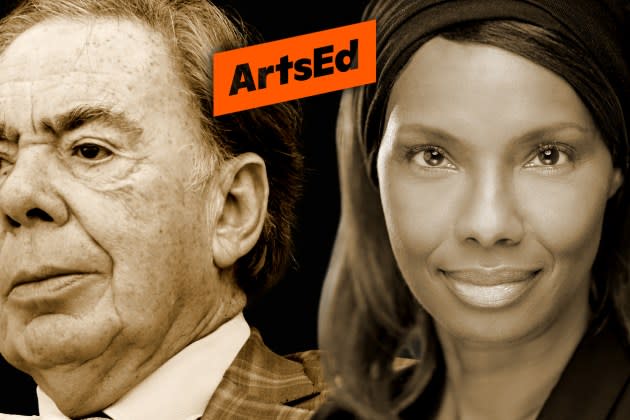
When Andrew Lloyd Webber’s foundation pocketed nearly $40M from the sale of a Pablo Picasso masterpiece in 2011, its thoughts turned to a performing arts school in the leafy London neighborhood of Chiswick.
Arts Educational, a century-old institution better known as ArtsEd, shaped Julie Andrews’ soprano voice long before she was singing in the hills of Salzburg. More recent star graduates include Andrews’ Bridgerton co-star Simone Ashley.
More from Deadline
Lloyd Webber has had an official association with ArtsEd since 2007 and, armed with its Picasso cash pile, the musical theatre impresario’s foundation made a donation to the school that was, at the time, the most generous in its history.
The £3.5M ($4M) grant in 2013 funded a refurbishment of ArtsEd’s main theatre, a proscenium arch performance space that now bears his name. It is where the school’s 640-odd students hone their craft in the hope that they may one day graduate to bigger stages — perhaps even The London Palladium, Lloyd Webber’s storied West End theatre.

ArtsEd alumni are branded with a hallmark of quality, but the school’s illustrious reputation has been called into question in recent years. A barrister-led investigation in October 2021 found that ArtsEd had a “sexualized environment” and demonstrated a “lack of regard” for the wellbeing of students, exposing them to favoritism, bullying, and other misconduct.
One of the most chastening self-examinations ever undertaken by a UK drama school, Rebecca Tuck KC’s findings were said to be a shocking read for Lloyd Webber, who holds the hands-off, ceremonial role of ArtsEd president. The inquiry forced the resignation of principal Chris Hocking. Change was promised by ArtsEd’s board of trustees, the people tasked with holding the charitable organization to account. Intimacy training was expanded, complaints procedures were strengthened, wellbeing support was improved, and students were given a voice on the board.
Two years on, Tuck’s words still echo through the corridors of ArtsEd, but those familiar with the inner workings of the school said lessons from her review are yet to be fully learned. As part of a five-month investigation, Deadline has spoken to more than two dozen people linked to ArtsEd and reviewed internal emails and written testimonies from students and ex-staffers. Some of these sources described a “toxic” culture in which student wellbeing has continued to be put at risk by those tasked with cleaning up the mess identified by Tuck.
A representative for Lloyd Webber declined to comment. There is no suggestion that he was aware of the allegations.
ArtsEd said it strongly disputed the suggestion that it has a “toxic” and unsafe culture, arguing that the welfare of those who study at the school is its “highest priority.” A spokesperson said: “Many of the complaints raised relate to historic matters that occurred prior to the Rebecca Tuck KC review in 2021. While we have been unequivocal in accepting the cultural and leadership failings that were identified in the Tuck review, we have also made considerable progress to put things right in the last two years.”
Principal Julie Spencer has been ArtsEd’s reformer-in-chief, but current and former students and employees have voiced considerable anxiety about her leadership style. She is viewed as a smart and often charismatic individual, but 20 people who have had personal interactions with Spencer accused her of being an erratic and occasionally intimidating leader since she joined in 2019.
Former students said they felt threatened by her behavior, alleging that she was capable of bizarre outbursts, including one in which she accused a year group of being “snakes.” They spoke of a “culture of fear” in which they felt anxious about their position at the school and ability to achieve their desired grades. Earlier this year, unease over student safety boiled into a strike following complaints over teachers using discriminatory language.
Many former employees who spoke to Deadline echoed these sentiments. At least two ex-staffers accused Spencer of intimidating behavior, while others blamed ArtsEd for a deterioration in their mental health. Many said high staff turnover was symptomatic of alleged difficulties at the school.
The majority of those who spoke to Deadline said they considered Spencer’s behavior to be bullying. Reflecting on their experience at the school, one recent graduate said: “Aspiring actors and singers need to feel safe and supported; you need to feel like you’re not being judged. At ArtsEd, it felt like you were walking through a Mafia neighborhood in Napoli.”
ArtsEd rejected accusations of misconduct and bullying leveled at Spencer. It said she was responsible for a major overhaul of the school’s processes, which had been necessary, if not always popular with long-serving employees. An independent legal review, commissioned earlier this year in connection with an individual staff dispute, found no evidence of a toxic or unsafe culture at ArtsEd. The school declined to release the findings on confidentiality grounds.
“The school’s leadership has been working to proactively improve our culture and processes. We have made many robust changes that were needed in light of those findings, including staff departures and instilling a new and more student-focused culture,” a spokesperson said. “Although this work is ongoing and we recognise that there is always room for evolving and building on the improvements that have been made, we are confident that the school today is a much more accountable and supportive environment than two years ago.”
The majority of those who spoke with Deadline said they did not give evidence to Tuck’s inquiry, meaning their allegations about ArtsEd’s current leadership team are being reported for the first time. Most shared their experiences on the condition of anonymity for fear of damaging their careers, but two former employees felt so strongly about student wellbeing that they went on the record with their concerns — a rarity in the close-knit world of theatrical education.
ArtsEd’s Roots Of Unrest
The roots of ArtsEd’s unrest can be traced back more than a decade. As prestigious British drama schools faced a reckoning linked to the #MeToo movement, ArtsEd asked employment attorney Rebecca Tuck to investigate complaints of historical misconduct dating back to graduates of 2009.
Deadline can reveal for the first time that the inquiry was launched following a historical allegation of sexual misconduct against Andrew Wright, an Olivier Award-nominated West End musical choreographer who regularly led workshops for ArtsEd on a freelance basis. Tuck told Deadline that there was a lack of supervision for visiting creatives at ArtsEd and their “demigod-like” status among students left young people vulnerable to abuses of power.
Deadline has been unable to contact Wright. Talent agent Gavin Barker, who represented Wright, said he lost contact with the choreographer after the ArtsEd allegations emerged in 2021. Barker said they never officially parted ways, Wright simply “disappeared,” leaving behind a successful West End career.
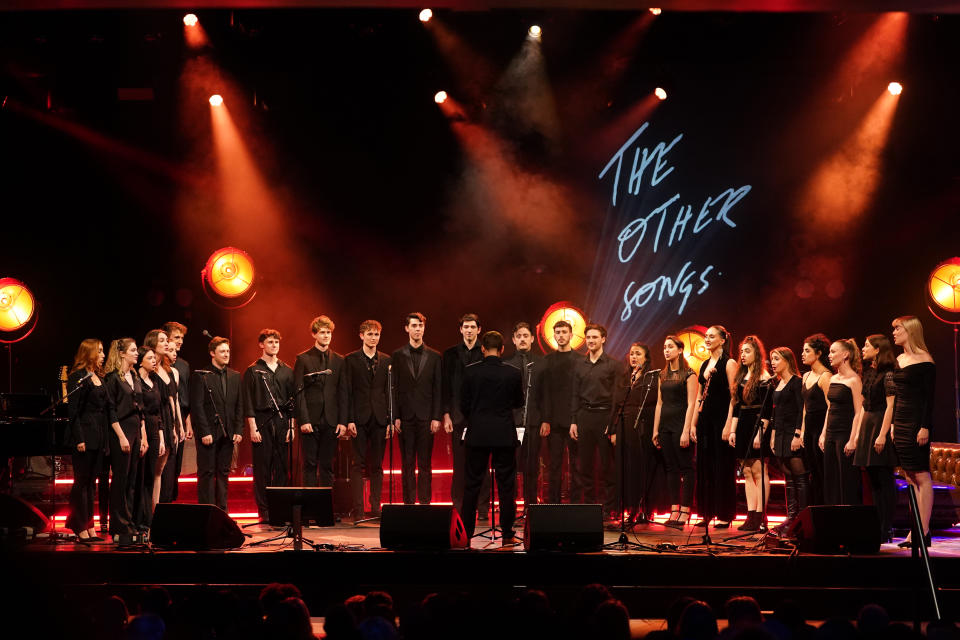
Wright taught in ArtsEd’s School of Musical Theatre, which Tuck found had a “misguided” and “sexualized” culture, where students performed a “sexy dance” as part of their training. A 2014 graduate told Deadline that students stripped down to their underwear and lap-danced on each other.
The School of Musical Theatre was the domain of Chris Hocking, who joined as its director in 2009 before he was promoted to ArtsEd principal seven years later. The so-called “sexy dance” and Wright’s alleged misconduct took place on his watch. Some former employees said Hocking was simply preparing students for an industry where sex sells, but most acknowledged that he was right to resign after Tuck delivered her review to ArtsEd’s board. Hocking declined to comment.
Julie Spencer The Reformer
If Hocking was cast as the face of ArtsEd’s inappropriate past, Julie Spencer was seen as the new broom. She joined ArtsEd in 2019 as director of the School of Acting, which dodged the worst of Tuck’s opprobrium. She was free from historical baggage and was viewed as a strong advocate for diversity at a time when the Black Lives Matter movement had sparked allegations of racism at revered performing arts schools.

Spencer was made interim principal in June 2021, when Tuck’s investigation was launched, and she was confirmed in the £110,000-a-year post the following spring. She was so convincing a candidate that ArtsEd’s board of trustees appointed her without an open recruitment process, according to people familiar with the matter.
Since her hire, Spencer has put into action her long-held ambition to become an industry reformer. In a 2020 Bush Theatre interview, Spencer said she had ripped up ArtsEd’s acting curriculum so that it was no longer taught through a “40-year-old white man’s lens.” The school said that she has overseen the introduction of new complaints and whistleblowing policies, as well as a strengthened anti-harassment and bullying procedure. Internal feedback showed this was handled sensitively by Spencer.
People who worked with Spencer, or were taught by her, told Deadline that she is a highly capable individual who worked quickly to update processes, but several sources said there were warning signs about her conduct before she was elevated to principal.
Students from ArtsEd School of Acting’s class of 2022 recalled two examples of behavior that disturbed them. They said the incidents were evidence of Spencer crossing a line and being threatening to the young people under her stewardship. Spencer denied the allegations.
During a weekly video call with the year group in 2020, three witnesses alleged that Spencer described pupils as “snakes” after she discovered that there had been a disagreement about their school experience in a student WhatsApp group chat. One person said students were “distressed” after the meeting but they did not voice objections because they were “scared” of Spencer.
In a second incident in 2021, four witnesses recalled how Spencer, for unclear reasons, shocked students by accusing them of plotting a revolt during an in-person meeting. The witnesses described how she paced around the group pointing at students, repeatedly inviting them to take a shot at her. “She stood up in the middle of a room with her hands open like the Angel of the North and was like: ‘If you want to take me down, come and get me,’” one person recalled. “We were all thinking: what the f**k is going on?”
Both incidents were estimated to have been witnessed by more than 20 students. Spencer had no record or recollection of the two meetings. She denied calling students “snakes” and reacting to a perceived revolt, arguing that the accusations were implausible and fanciful.
Michael Attenborough Complaints
ArtsEd’s 2022 graduates also made complaints about a high-profile visiting creative, who was hired by Spencer despite her being warned about allegations regarding his conduct before she joined the school. The issue was examined by Tuck but was not included in the published summary of her review, meaning Deadline is reporting the details for the first time.
Michael Attenborough, a distinguished British theatre director and son of Oscar-winner Richard Attenborough, was engaged to lead a workshop with students in 2021. Two witnesses accused the former Almeida Theatre artistic director of staring at female members of the class and making comments that some students deemed inappropriate, including referring to himself as being circumcised.
“It was a bit weird, but I think it was his way of trying to lighten the mood and to make sure that everyone felt human,” said one person who was in the room. “It’s just like [listening to] your grandad, who’s a bit out of touch with the world.”
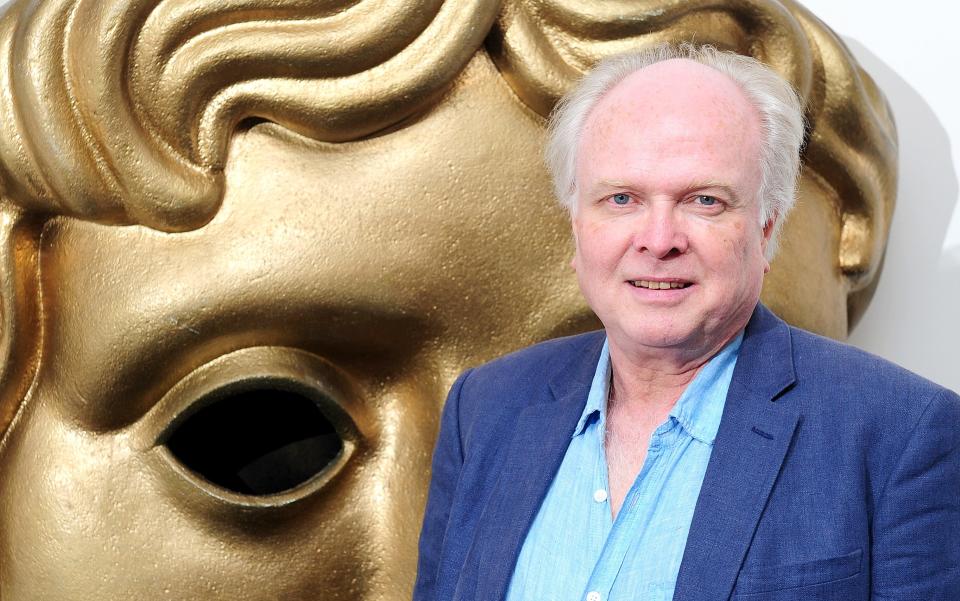
An ex-student praised Spencer for reacting quickly to the Attenborough complaint and said the director was asked to apologize to the group. His apology was described as “tender” and “heartfelt,” and two witnesses said Spencer appeared emotional during the exchange. ArtsEd later wrote to Attenborough to inform him that he would no longer be permitted to direct or teach at ArtsEd in any capacity.
The incident followed similar concerns being raised about Attenborough’s conduct by 2019 ArtsEd graduates after he led Shakespeare lessons. A well-placed source said students made their reservations clear to ArtsEd teachers during a group discussion. ArtsEd made an informal decision that it would no longer work with Attenborough, but this was not communicated to him because students did not want the matter to go further.
Two people said Spencer was made aware of the concerns of 2019 graduates soon after she joined ArtsEd, though it is unclear exactly what she was told. One person claimed that Spencer was informed about an allegation of favoritism against Attenborough and because the school had not taken any formal action, she saw no reason to withdraw his invitation to teach.
Attenborough declined to comment. His representative at United Agents said he received a greetings card from the 2019 ArtsEd graduates thanking him for his work. Others vouched for his reputation as a teacher. In a letter to Deadline, Leontine Hass, the founding principal of Associated Studios, said Attenborough was “much loved and respected” by students and employees at her drama school. “He has a cheeky sense of humour. However we have never witnessed him trying to use this to offend. Our students adore Michael because he is a great witty talent, a great teacher, full of humanity, warmth and passion,” she said.
A Teacher Speaks Out
All of the current and former ArtsEd students who spoke to Deadline said they never knew where they stood with Spencer. On some days, she would be charming, on others she would blank them. One student recalled being reduced to tears after an encounter with Spencer, but said she was “lovely and pretended like nothing had ever happened” the next day.
Several students recalled how she would deliver brusque and unconstructive feedback; how she would huff, roll her eyes, or yawn during performances. They said people were scared to speak freely about their experiences at the school for fear that the information would find its way back to Spencer. The students said she had “favorites” who would receive kinder treatment and greater access to the principal. Spencer denied favoritism and believes the anonymous accounts of students to be generic and anecdotal.
One person prepared to articulate their anxiety in an interview was Steven Kavuma, a former member of the executive teaching team at ArtsEd’s acting school. Kavuma’s hire was trumpeted in an ArtsEd press release in 2020, the same year he was voted by industry trade title The Stage as one of the 100 most influential people in UK theatre. He led ArtsEd’s foundation course, which was based off-campus at The Lyric Theatre.
Speaking for the first time about his experience at ArtsEd, Kavuma told Deadline that he raised verbal concerns about student welfare twice last year: once with his manager in the summer term and a second time with HR before he left in December.
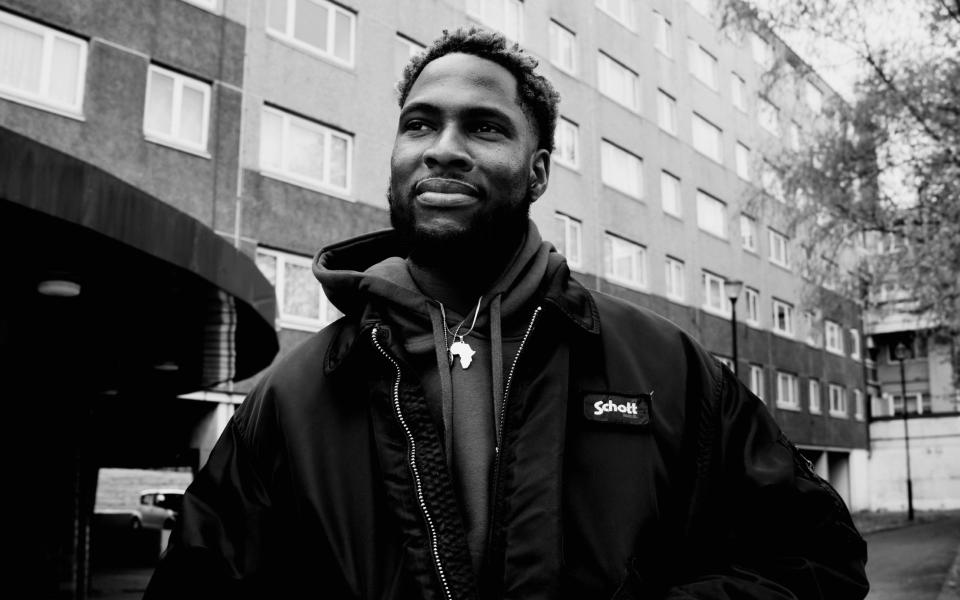
“I witnessed first-hand bullying towards students and teachers. I tried to challenge it within the school, but the principal would isolate you,” said Kavuma. “I don’t think it is a safe environment to train. If students don’t feel comfortable challenging that within that school, if they feel fearful… I just don’t think that’s healthy at all. Some students felt like they had to be watching their backs constantly, they felt intimidated.”
ArtsEd could not find a record of Kavuma making a complaint to HR and a source close to the school questioned how he dealt with student concerns during his two-and-half years of employment. He left ArtsEd without completing an exit interview, but said this was because he did not trust HR to act on his feedback. The ArtsEd source questioned why Kavuma felt it appropriate to teach a workshop for the school over the summer given his concerns. Kavuma said the lessons were not connected to the organization’s main acting courses, which were where he had misgivings about student welfare.
A well-placed former employee said there were a number of complaints to HR about Spencer’s alleged conduct, but people were reluctant to put concerns in writing for fear of being punished or losing their jobs. The same person alleged that Spencer’s leadership upset “many kind, honest, and decent colleagues who deserved better.” At least two people said their final months at the school damaged their mental health.
A Deadline analysis has shown that as many as 20 senior leaders, heads of department, and course leaders have left ArtsEd over the past two years. ArtsEd, which has around 210 employees, did not recognize this figure, but admitted that there had been employee churn as the school has overhauled its processes following the Tuck review, with the changes proving unpopular with some.
People said the turnover was not normal for a performing arts school of ArtsEd’s standing and had contributed to a lack of continuity for students. Kavuma, the former ArtsEd teacher, echoed the sentiments of many when he said: “It creates a lack of stability for students and their learning environment. One minute, your teachers are telling you one thing, and the next, you’ve got a new staff member. It just puts the students’ learning and education at risk.”
An ArtsEd spokesperson said: “We acknowledge that there have been some staff departures, some of which are a direct consequence of the robust response by the ArtsEd leadership to the Tuck review.
“These have been the result of making necessary changes to ArtsEd to eradicate issues raised in the Tuck review (which ArtsEd has fully acknowledged and apologised for) and to ensure that the institution progresses and improves. It is also important to note that some degree of staff turnover is to be expected within any education institution and that a high number of new staff have joined ArtsEd in the last two years and have made a hugely positive impact on the student experience.”
Spencer Apologizes To Employee
One employee who left in 2021 was Leanne Nagle, the front-of-house manager for ArtsEd’s theatre. In an interview, she claimed that Spencer was forced to apologize to her in the presence of an HR representative after an incident on November 26, 2019. Nagle did not give evidence to the Tuck inquiry, so this is the first time her account is being published.
Nagle consulted a lawyer on the night of the incident and he helped her write a letter of complaint, which was emailed to ArtsEd’s head of HR the following day. Seen by Deadline, Nagle’s grievance described confusion over why two audience members were allowed into an ArtsEd play after the curtain had gone up. It resulted in a tense exchange with Spencer, who only wanted late arrivals to be permitted entry during the interval.
Nagle told Deadline that Spencer was aggressive during their conversation and pointed a finger in her direction. In her written complaint, Nagle said she made clear to Spencer that she was upset by the exchange, to which the principal allegedly waved her hand dismissively and said: “I’m not listening to this, go on make a drama because I know you love that and have a little cry.”
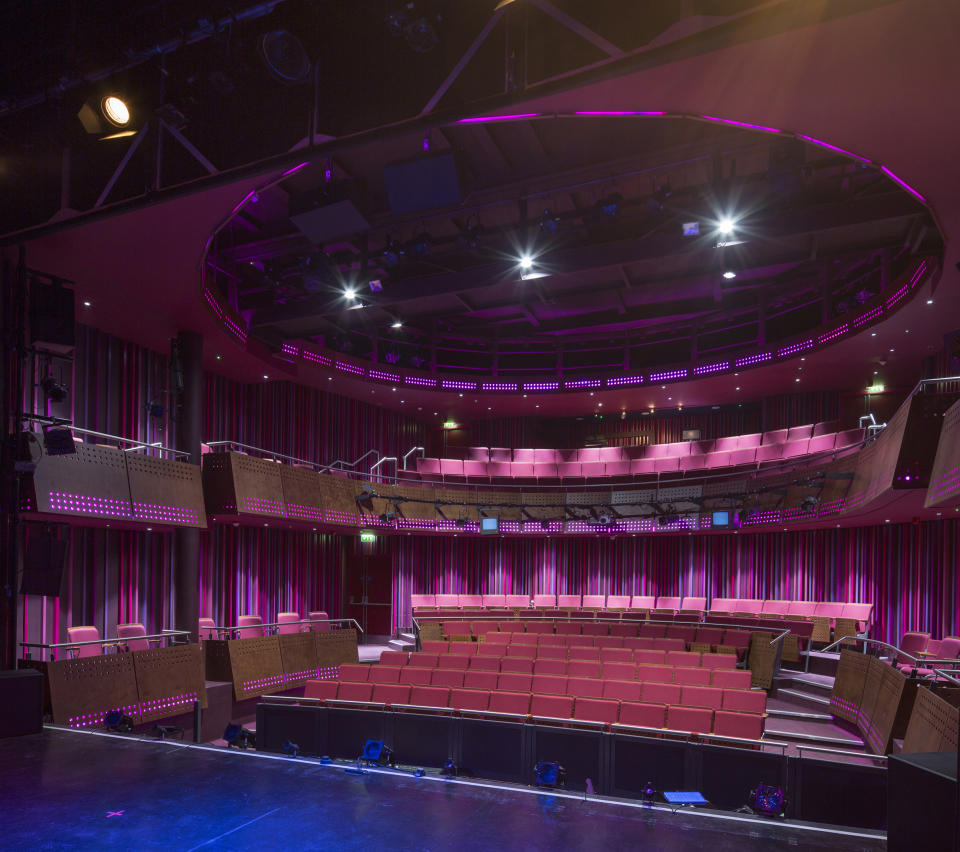
Nagle believed Spencer’s remark to be a callback to a previous unrelated incident in which she was left tearful following an altercation with a student. Around this time, Spencer made a complaint about Nagle’s interactions with some students to former principal Chris Hocking and said others were concerned about her alleged behavior. Nagle told Deadline that she was unaware of the complaint and denied that she was ever formally confronted with the concerns or told to change her behavior. One of Nagle’s former colleagues corroborated her account.
Nagle said the incident on the night of the play was captured on CCTV and witnessed by a receptionist, who later complained to HR on her behalf. A second person also saw the audio-less CCTV footage and raised concerns with former principal Hocking, according to an ex-employee.
ArtsEd was not aware of any CCTV footage from the night. It is understood that Spencer was not formally investigated over the altercation. She did not deny apologizing to Nagle.
Nagle left ArtsEd in March 2021 and, shortly after her exit, said she wrote a physical letter to the school’s board of trustees detailing the incident and questioning the safety of students. She said the letter was placed in a mailbox for trustees, but ArtsEd had no record of it reaching the board.
She told Deadline: “They say at drama schools that they break you [down] to build you back up … Julie was not so much breaking them down to build them back, she was just breaking these poor kids.”
Even if Nagle’s concerns failed to reach the board, ArtsEd trustees were made aware of allegations about Spencer’s conduct in 2021 before appointing her as principal. Three sources said a group of students made their concerns known in statements to the board in 2021 after initially attempting to give evidence to Tuck’s inquiry. The complaints were reviewed by trustees and none were upheld, but Spencer did agree to a personal action plan.
Students On Strike
Several sources said two clashes between students and teachers in recent months demonstrated the fraught mood at ArtsEd. In June, first- and second-year ArtsEd undergraduates went on strike for a morning following complaints about teachers using discriminatory language.
One teacher is alleged to have said the N-word and, during a conversation with a student about the inappropriate language, the young person was accused of saying the F-word, which is used as a homophobic slur. Kim Vithana, the director of ArtsEd’s School of Acting, allegedly repeated the F-word when attempting to explain the situation to a group of students. Vithana, a former star of BBC drama Holby City, is seen as a close ally of Spencer.
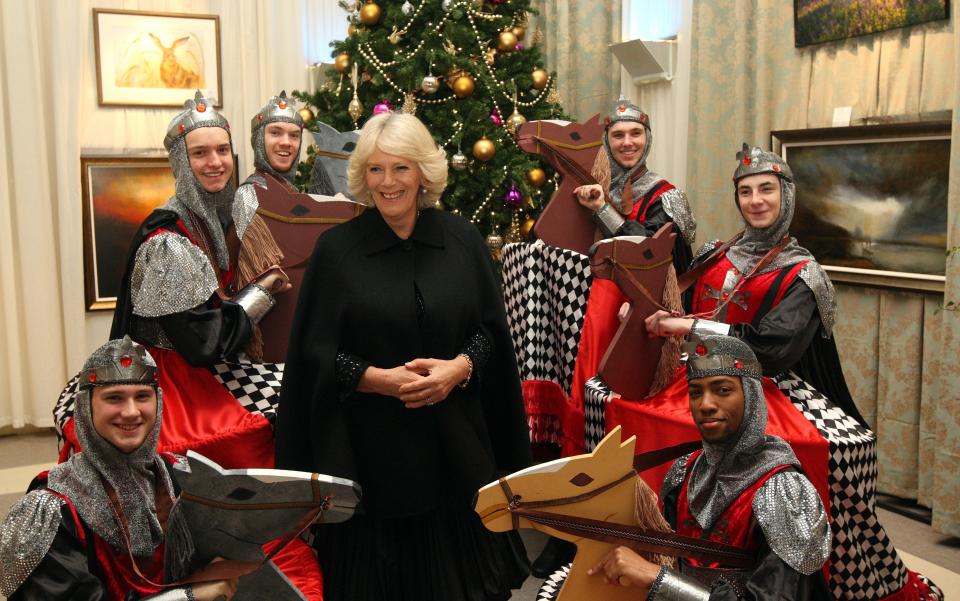
A participant in the strikes said students refused to attend lessons amid concerns for their wellbeing. Deadline understands that Spencer discussed a plan of action with students that meant they felt able to return to lessons in the afternoon. An investigation into Vithana’s conduct was resolved and ArtsEd continues to review the behavior of the teacher accused of using the N-word.
There was also discord over the choice of Babel for a third-year play over the summer. Students claimed that the relatively unknown play perpetuated negative stereotypes about Muslim people and misquoted the Quran. Students met with teachers on numerous occasions and although some concerns were addressed, including cutting the Quran line, those involved said the rehearsal process affected their mental health. “Pupils cried in front of the staff during many of our meetings with them,” said one person involved.
The situation came to a head during performances. Third-year students were accused of inappropriate laughter on stage, while there were also misgivings about the response of some students sitting in the audience. Vithana sent second- and third-year students an email saying she was “very disappointed” to hear about “unprofessionalism” during the shows.
In a written reply, students accused Vithana herself of being unprofessional for emailing a large section of the school with her concerns, rather than addressing it with the individuals involved. They accused her of airing her “dirty laundry” in public. “The manager should be backing the players,” said one student, reaching for a sporting analogy. The young people were temporarily locked out of their email following the exchange, though ArtsEd’s position is that the accounts were suspended to protect student wellbeing.
Drama Schools Uncovered
ArtsEd is far from alone in experiencing student unrest. Deadline’s Drama Schools Uncovered investigation has revealed that performing arts institutions are breeding grounds for misconduct, with more than 100 cases of sexual harassment, discrimination, and bullying recorded since 2020.
Kavuma said: “As a teacher and a senior member of staff at ArtsEd, I was able to see what was so wrong with our drama school institutions. I tried to change it, but a lot of it is learned culture you are trying to change … There needs to be an independent body to regulate drama schools.”
ArtsEd is understood to be open-minded about an independent drama school regulator, but the school repeatedly pointed to the 2021 Tuck review as an example of accountability in action. All higher education institutions in the UK are regulated by the Office for Students.
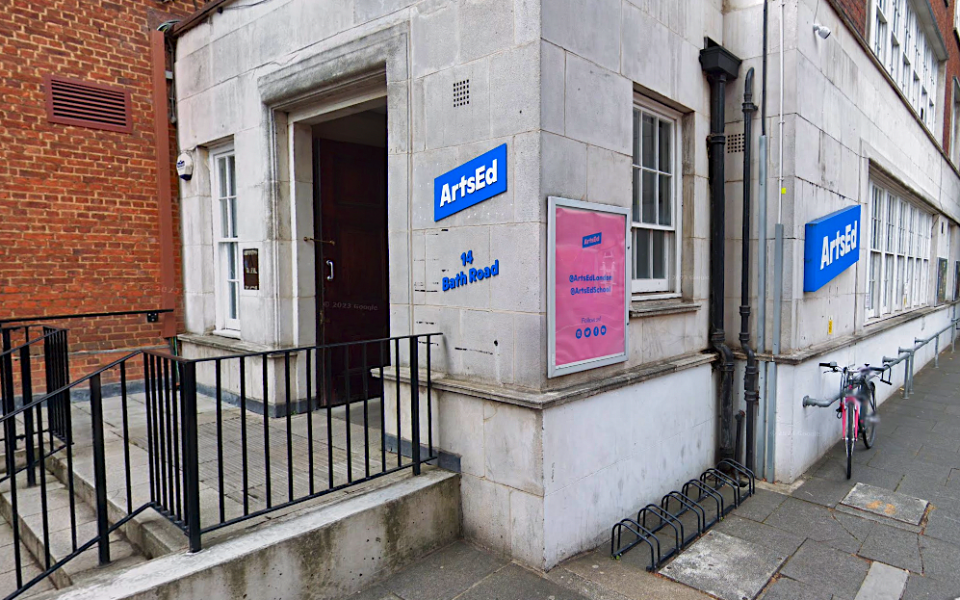
An ArtsEd spokesperson said: “We strongly reject any suggestion that we have put student safety at risk and also reject the accusations of misconduct and bullying levelled at our principal Julie Spencer. The safety and welfare of students is our highest priority.
The spokesperson added: “Since the publication of the Rebecca Tuck KC review two years ago, Julie Spencer – with the full support of the board of trustees and senior leadership board – has made many robust changes that were needed in light of those very serious findings. These changes have included staff departures and instilling a new and more student-focused culture.
“These changes have included staff departures and instilling a new and more student-focused culture. It has also included a major overhaul of the school’s policies and procedures. Today we have a clear complaints procedure in place, including a whistleblowing policy, and ensure that every complaint the school receives is thoroughly investigated and recorded. Where complaints are upheld, appropriate action is taken.
“We have also created new policies in important areas such as the recruitment and management of freelance creative staff and visiting lecturers. We have updated and strengthened our student and staff anti-harassment and bullying policies to ensure that they are in line with the latest regulatory guidance. And, in order to ensure that student voices continue to be represented at the highest levels of the institution, we have put in place a student voice and participation policy as well as enhanced student representation and participation at committee level. Student engagement and feedback is reviewed and responded to at a senior level within the organisation.
“We have also undertaken a governance effectiveness review, led by an external law firm, who delivered their final report in May 2022. Their recommendations have been accepted in full and we are at the final stages of implementing them all.
“While we appreciate the scale of the task in light of the serious findings in the Tuck report, and that this important work remains ongoing, we have made considerable progress in the last two years to enhance student support and improve student welfare and safety.”
When Lloyd Webber donated millions to the school in 2013, he said he hoped the money could “make a real difference” to students who may one day follow in the footsteps of star graduates like Catherine Zeta-Jones. ArtsEd has stood by Spencer as the right person to continue delivering this mission.
If you would like to get in contact with the author of this investigation, please email jkanter@deadline.com.
Best of Deadline
2023-24 Awards Season Calendar - Dates For Oscars, Emmys, Grammys, Tonys, Guilds & More
Alan Arkin: Photos From His Award-Winning Work On Stage, On TV And In Film
Sign up for Deadline's Newsletter. For the latest news, follow us on Facebook, Twitter, and Instagram.


